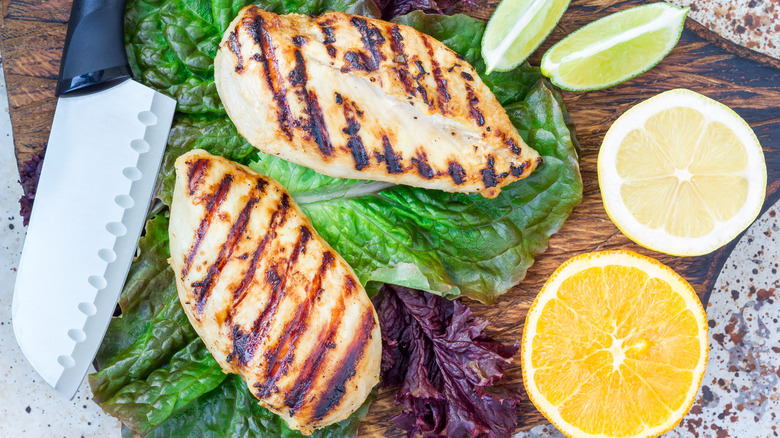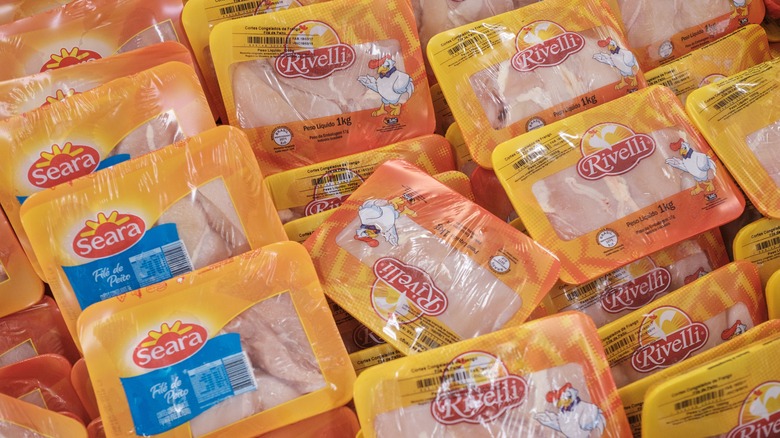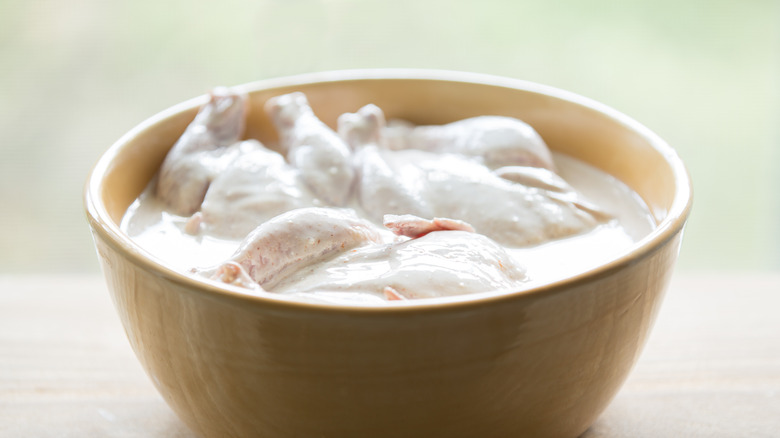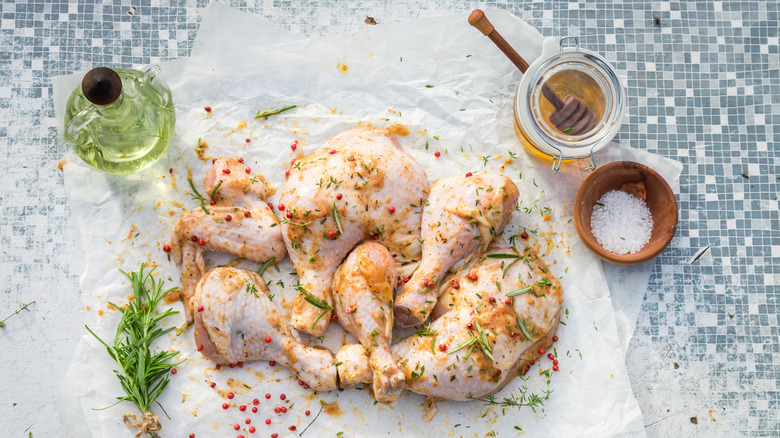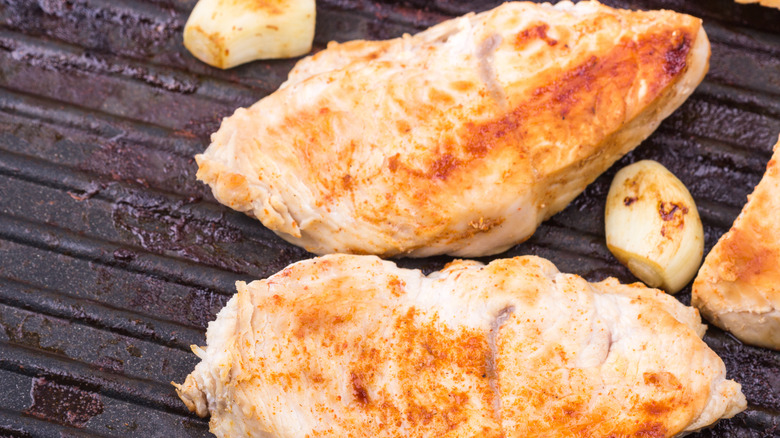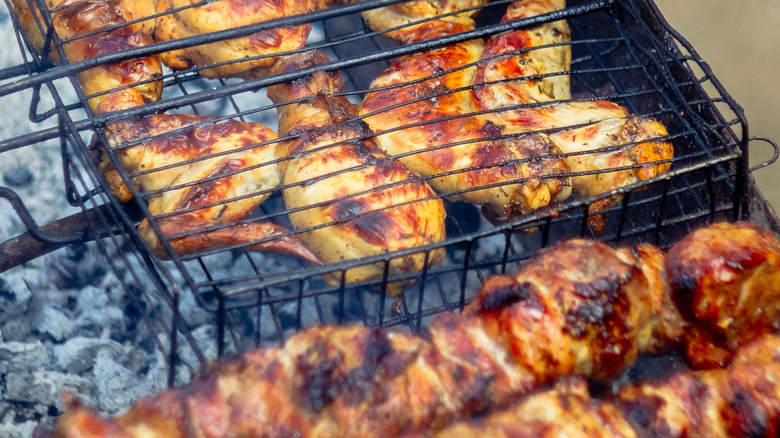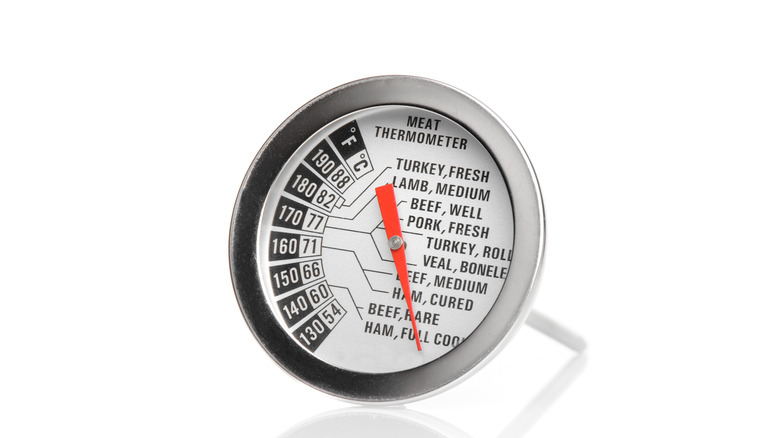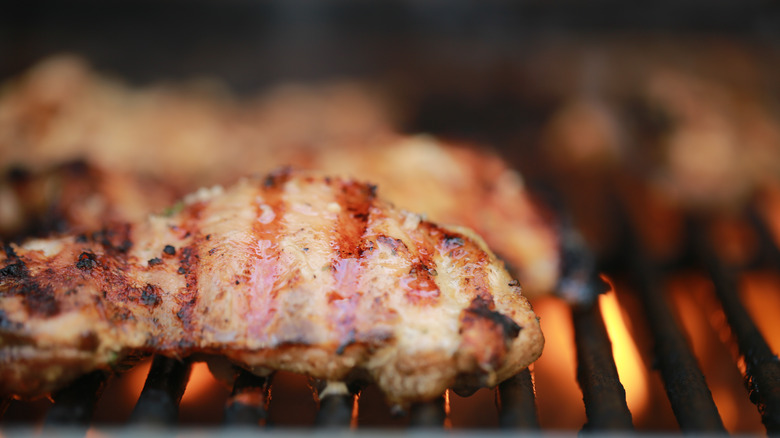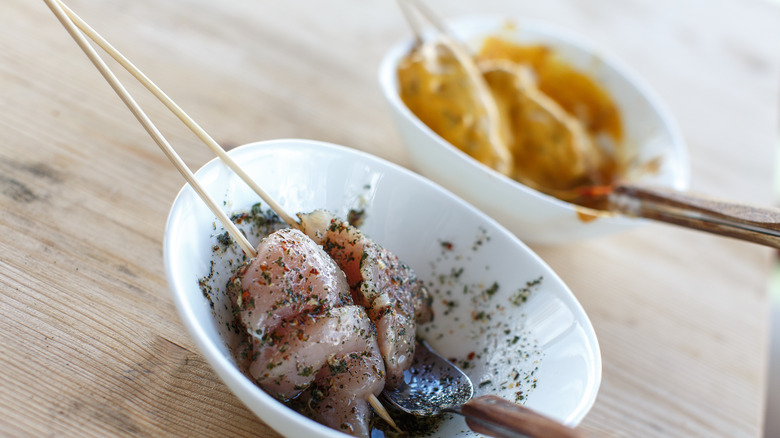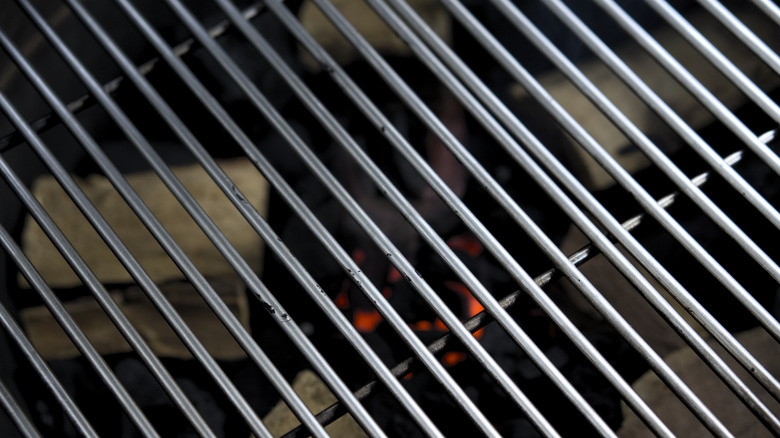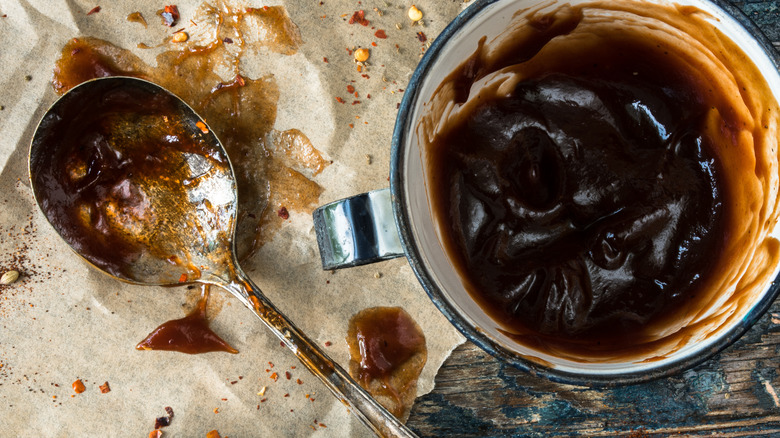Ways You're Grilling Your Chicken All Wrong
While no cookout would be complete without burgers, hot dogs, and grilled chicken, that last one can prove to be trickier than you might think. Chicken presents a host of potential pitfalls because it's so easy to do right but just as easy to screw up. I'm fairly certain we've all eaten dry, uninspiring chicken from the grill. From what type to buy and how to season it, to how long to cook it for and checking to see if it's done, this commonplace cookout poultry of choice comes with a whole lot of question marks even for more experienced grill masters! The good news? Take into account a few simple tricks of the trade and you never have to eat blah chicken again. Read on to find out what mistakes most people make — so you can be sure to avoid them.
Using cheap chicken
Starting off with a good bird is half the battle. While organic chicken is invariably more expensive than the regular kind, you end up feeling so much better about eating poultry that's free of hormones and antibiotics. Since there are lots of issues you can run into when grilling meat, why not give yourself a head start by using the best chicken you can afford? Sound logic.
Skipping the brine
Often when I deal with chicken, I use a brine, especially when I plan to fry or grill it. Over such high heat, chicken benefits from the tenderizing effects of using a simple a brine. The salted water infuses the chicken with flavor as well as moisture to keep the meat juicy. Keep the chicken in the brining liquid for even 30 minutes prior to grilling and you'll be rewarded with better tasting meat.
Not seasoning the chicken properly
In addition to taking the time to brine the chicken, be sure to season it well with salt and pepper. Sauces are no substitute for seasoning the meat.
Cooking the chicken at the wrong temp
Chicken is easy to dry out, especially if you're grilling boneless, skinless varieties. That said, you want to avoid cooking the chicken over extremely high heat, as it will cook too fast on the outside, yet leave the center undercooked. Since raw chicken is no fun to bite into, try to avoid high heat. If you're using a charcoal grill, cook the chicken over moderate heat, and if you're using a gas grill, try medium heat.
Not paying attention during cooking
While it may seem obvious, do pay attention to the chicken while it's cooking on the grill. Over such direct heat, it can be pretty easy to let the chicken overcook or worse yet, burn. Yikes! Some areas of the grill may be hotter than others, so be sure to move your chicken around on the grill so it cooks evenly. If you notice certain parts of the chicken cooking too fast, rotate so that part is over a cooler section of the grill.
Not using a thermometer
While you may think you can eyeball doneness, it's really difficult to do. The outside of grilled chicken may look cooked, but the inside could still be raw. The best way to eliminate uncertainty is to use a meat thermometer to make sure the chicken's interior temp registers at 165 degrees Fahrenheit. When you pierce the chicken, the juices should run clear and you shouldn't see any pink. Easy-peasy.
Not knowing when to flip it
Leaving a piece of chicken on the grill for too long is an easy way to burn it and cause a scary flare. Be sure to flip your chicken as soon you notice the flesh has turned white. Ideally, you should only need to flip the chicken once for those impressive-looking grill marks.
Drying out the chicken
While raw chicken sucks, dry chicken is also awful. Some people are so nervous about eating undercooked chicken that they veer way too far in the opposite direction. In addition to brining your chicken, you can also use marinades to help keep meat moist. Also, be sure to prep the chicken so the pieces are the same thickness. Doing so helps them to cook evenly on the grill. Otherwise you end up with random dry parts.
Not oiling the grill grates
No one likes chicken stuck to grates. Oil your grill grates thoroughly before you get your cookout started. You can also spray them with a nonstick cooking spray. As an added measure, you can also lightly brush the pieces of chicken with some oil. Works like a charm!
Adding barbecue sauce at the wrong time
Sauces that have sugar in them—like, barbecue sauce—tend to burn over high heat. Slather sauce on your chicken after it's cooked as opposed to before to avoided the dreaded burnt-sauce-big-mess phenomenon.
That's all! Have fun grilling stellar chicken.
